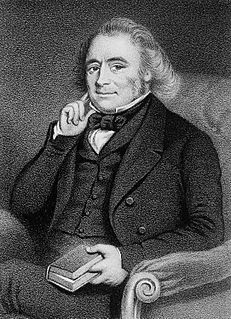A Quote by Solomon
Related Quotes
Sweet is the rose, but grows upon a brere;
Sweet is the juniper, but sharp his bough;
Sweet is the eglantine, but stiketh nere;
Sweet is the firbloome, but its braunches rough;
Sweet is the cypress, but its rynd is tough;
Sweet is the nut, but bitter is his pill;
Sweet is the broome-flowre, but yet sowre enough;
And sweet is moly, but his root is ill.
What the working man sells is not directly his Labor, but his Laboring Power, the temporary disposal of which he makes over to the capitalist. This is so much the case that I do not know whether by the English Law, but certainly by some Continental Laws, the maximum time is fixed for which a man is allowed to sell his laboring power. If allowed to do so for any indefinite period whatever, slavery would be immediately restored. Such a sale, if it comprised his lifetime, for example, would make him at once the lifelong slave of his employer.
Oh, the terrible struggle that I have had against sleep so often of late; the pain of the sleeplessness, or the pain of the fear of sleep, and with such unknown horror as it has for me! How blessed are some people, whose lives have no fears, no dreads; to whom sleep is a blessing that comes nightly, and brings nothing but sweet dreams.
What early tongue so sweet saluteth me? Young son, it argues a distemper'd head So soon to bid good morrow to thy bed: Care keeps his watch in every old man's eye, And where care lodges, sleep will never lie; But where unbruised youth with unstuff'd brain Doth couch his limbs, there golden sleep doth reign.
Sweet and low, sweet and low, Wind of the western sea, Low, low, breathe and blow, Wind of the western sea! Over the rolling waters go, Come from the dying moon, and blow, Blow him again to me; While my little one, while my pretty one, sleeps. Sleep and rest, sleep and rest, Father will come to thee soon; Rest, rest, on mother's breast, Father will come to thee soon; Father will come to his babe in the nest, Silver sails all out of the west Under the silver moon: Sleep, my little one, sleep, my pretty one, sleep.
There is sweet music here that softer falls Than petals from blown roses on the grass, Or night-dews on still waters between walls Of shadowy granite, in a gleaming pass; Music that gentlier on the spirit lies, Than tir'd eyelids upon tir'd eyes; Music that brings sweet sleep down from the blissful skies. Here are cool mosses deep, And thro' the moss the ivies creep, And in the stream the long-leaved flowers weep, And from the craggy ledge the poppy hangs in sleep.
Long time a child, and still a child, when years Had painted manhood on my cheek, was I; For yet I lived like one not born to die; A thriftless prodigal of smiles and tears— No hope I needed, and I knew no fears. But sleep, though sweet, is only sleep—and waking, I waked to sleep no more; at once o'ertaking The vanguard of my age, with all arrears Of duty on my back. Nor child, nor man, Nor youth, nor sage, I find my head is gray, For I have lost the race I never ran. A rathe December blights my lagging May: And still I am a child, though I be old Time is my debtor for my days untold.




































